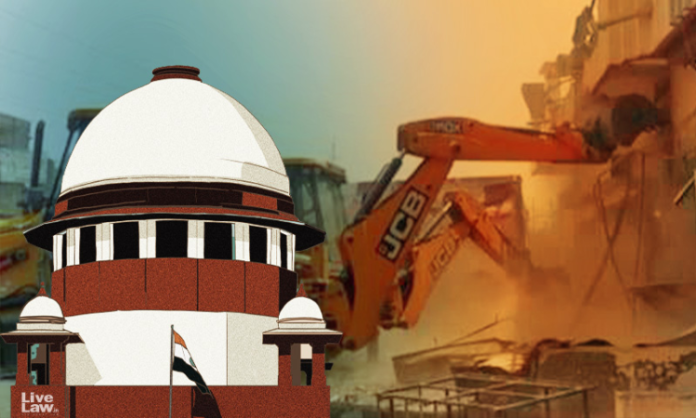Forty-seven residents of Assam have filed a contempt petition in the Supreme Court, alleging that authorities violated a court order prohibiting demolitions until October 1. The interim order, issued on September 17, stated that no demolitions should occur without prior permission from the court, with exceptions for encroachments on public infrastructure.
The petitioners claim that their homes have been marked for demolition without prior notice, branding them as encroachers. They seek contempt proceedings against the officials involved. The case is scheduled for hearing before a bench comprising Justice BR Gavai and Justice KV Vishwanathan on Monday.
The petition references a previous order from the Gauhati High Court on September 20, 2024, in which Advocate General of Assam assured that no action would be taken against the petitioners while their representations were pending. Despite this assurance, the authorities allegedly continued with the demolition process, further violating the court’s directive.
The petition highlights that the right to housing is a fundamental right under Article 21 of the Constitution and cannot be infringed upon without due process. The petitioners, who have lived in Kachutoli Pathar and neighboring areas in Kamrup Metro district for decades, argue that they occupy the land through power of attorney agreements with the original landholders, some of whom belong to the protected tribal class. They assert that their occupation is legally valid and should not be classified as illegal.
The petitioners contend that their families have resided on the land since 1920s, prior to the establishment of tribal belts in the area in 1950. They argue that the authorities’ actions violate Section 165(3) of the Assam Land and Revenue Regulation, which mandates the issuance of eviction notices with a one-month period for occupants to vacate before any demolition.
The petition asserts that the demolitions violate principles of natural justice, specifically the right to a fair hearing, as the petitioners were not given the opportunity to defend themselves. The lack of notice has led to the deprivation of their homes and livelihoods, infringing on their rights under Articles 14, 15, and 21 of the Constitution.




